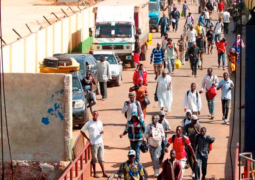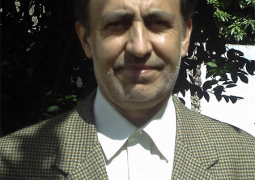It is the biggest, most exciting and indeed most popular sports meeting locally organised in the country. No tournament can match its fanfare, mounting interest and excitement and enormous following that continue to grow since its inception in the early 1990s.
Until 2012 when the football association was itself undergoing changes, the Super Nawettan used to be organised directly by the Football Association, but last year the Normalization Committee, in its drive to give ownership of football to the communities themselves, agreed to sublet this organisation to a committee selected by the 12 recognised nawettan zones, which had its first tourney last year.
A year down the line and in the light of the current development (stoppage of the tournament due to violence) it is incumbent upon the GFF, and indeed all sports and football officials, to take a critical look at the various components of the Super Nawettan, especially its structures, composition and competence or capacity of the organising body as well as the attitude of the various zonal officials and fans.
For a start, I have noted on previous articles that the body organising the Super Nawettan has not done well in ensuring fair play, or shown professionalism in their execution of the enormous assignment they have tasked themselves with.
Classical examples are the absence of basic requirements such as a proper register of players and sharing and monitoring of that register among all zones. Another area needing urgent attention is the lack of thorough and prudent decisions on allocation of referees to matches, and the drawing of fixtures which often failed to take into consideration the need for fair play or safety.
Though lots of improvements have been made in this year’s edition, there is still ample evidence of shoddy arrangements at matches and curious match ups in the fixtures. The future between Brufut and Manjai for example was meant to be him match for Brufut but how can you justify that when the venue is the home of Brufut’s opponent?Couldn’t that match taken to Serrekunda West or Some other ground? Again, with all officials representing their zones in the Organsing committee, there is real danger that each one will be inclined to protect the interest of his or her zone to the detriment of the general smooth running of the organising body.
This is more apparent in case of disputes. The best practice here should be the institutionalisation of an independent body to receive complaints and sit over decisions that have to deal with punishments or sanctions. More importantly, the allocation of referees too needs to be looked at since every Gambian belongs to one zone or the other. Some of the violence were sparked by crowd disagreement of referees’ or linesmen’s decision.
The best practice here is to publish the roster of the referees for zonal representatives to study and raise queries where they deem conflict of interests may occur. It is important also that zonal officials take the initiatives to effectively sensitise their fans and lead by examples themselves by avoiding losing their cools in the event of disputes at matches.
The stability and safety of matches in the competition is paramount to the maintenance of the lucrative sponsorship deal reached with Skye Bank.
What however must be emphasised is that the Super Nawettan must not die. The competition is so much loved and enjoyable that there is no possible replacement for it now or indeed the near future.
In fact many advocates of football development have agreed that the national league should be formatted on the model of the Super Nawettan, mainly because of its identification with communities.
I hope there is food for thought for all here.



